The Major Supreme Court Decisions in 2023
Public confidence in the Supreme Court was shaken after its lurch to the right a year ago in blockbuster decisions on abortion, guns, religion and climate change.
The court — dominated by a 6-to-3 conservative majority, including three justices appointed by President Donald J. Trump — faces another set of important cases this term, including ones on affirmative action, student loans and civil rights for gay people. Its rulings will help answer questions about whether the court’s new configuration is out of step with public opinion.
According to a survey conducted in April by researchers at Harvard, Stanford and the University of Texas, the public is often — but hardly always — divided along partisan lines on how the court should rule in significant cases from the term that started in October and is expected to end in late June. Here is a look at those cases.
Environmental Protection
Conservative bloc
Roberts
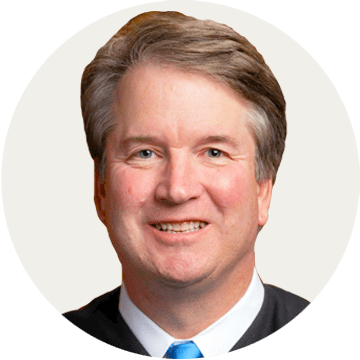
Kavanaugh

Barrett
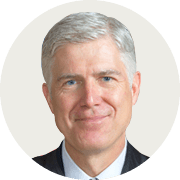
Gorsuch
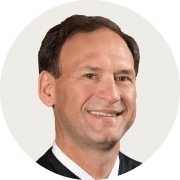
Alito
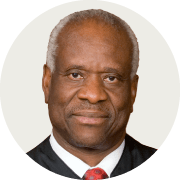
Thomas
Where the public stands
| The Clean Water Act should be read broadly, to include things like wetlands | The Clean Water Act should be read narrowly, to not include things like wetlands | |
|---|---|---|
| All | ||
| Democrats | ||
| Independents | ||
| Republicans | ||
Question wording: The Clean Water Act is a federal law that prohibits the “discharge of pollutants” into “navigable waters.” Some people think that this should be read broadly, to include things like wetlands. Other people think that this should be read narrowly, to include only things like streams, rivers and lakes. What do you think? | Source: SCOTUSPoll
Animal Cruelty and Interstate Commerce
Conservative bloc
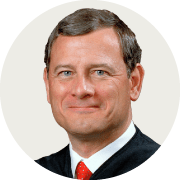
Roberts

Kavanaugh

Barrett

Gorsuch

Alito

Thomas
Where the public stands
| Such a law discriminates against commerce from other states | Such a law does not discriminate against commerce from other states | |
|---|---|---|
| All | ||
| Democrats | ||
| Independents | ||
| Republicans | ||
Question wording: California law prohibits the sale of pork from pigs that are kept in small cages. Some people think that such a law discriminates against commerce from other states because most pork comes from outside California. Other people think that such a law does not discriminate against commerce from other states. What do you think? | Source: SCOTUSPoll
Fair Use of Copyrighted Works
Conservative bloc

Roberts

Kavanaugh

Barrett

Gorsuch

Alito

Thomas
Where the public stands
| The original creator is not entitled to payment | The original creator is entitled to payment | |
|---|---|---|
| All | ||
| Democrats | ||
| Independents | ||
| Republicans | ||
Question wording: In 1981, a photographer took a photo of the musician Prince. The artist Andy Warhol made changes to this photograph and used that to create a series of famous prints. Some people think that when images are transformed like this, the original creator is not entitled to any payment. Other people think that the original creator is entitled to payment because the image is still recognizable. What do you think? | Source: SCOTUSPoll
Scope of Tech Platforms’ Liability Shield
Conservative bloc

Roberts

Kavanaugh

Barrett

Gorsuch

Alito

Thomas
Where the public stands
| Companies can be held responsible when their algorithm recommends content to users | Companies cannot be held responsible when their algorithm recommends content to users | |
|---|---|---|
| All | ||
| Democrats | ||
| Independents | ||
| Republicans | ||
Question wording: Some people think that large tech companies, such as Google, can be held responsible when their algorithm recommends certain content to users. Other people think that these companies cannot be held responsible for content recommended by the company’s algorithms if that content was posted by other users. What do you think? | Source: SCOTUSPoll
Tech Platforms and Terrorism
Conservative bloc

Roberts

Kavanaugh

Barrett

Gorsuch

Alito

Thomas
Where the public stands
| Social media companies can be held responsible | Social media companies cannot be held responsible | |
|---|---|---|
| All | ||
| Democrats | ||
| Independents | ||
| Republicans | ||
Question wording: Federal law states that social media companies are not responsible for hosting content that is posted by others. Some people think that social media companies can be held responsible for aiding and abetting terrorism for not removing content and accounts promoting terrorism. Other people think that they cannot be held responsible. What do you think? | Source: SCOTUSPoll
Affirmative Action
Conservative bloc

Roberts

Kavanaugh

Barrett

Gorsuch

Alito

Thomas
Where the public stands
| Private colleges and universities should not be able to use race as a factor in admissions | Private colleges and universities should be able to use race as a factor in admissions | |
|---|---|---|
| All | ||
| Democrats | ||
| Independents | ||
| Republicans | ||
Question wording: Some people think that private colleges and universities should not be able to use race as a factor in admissions. Other people think that they should be able to. What do you think? | Source: SCOTUSPoll
| Public colleges and universities should not be able to use race as a factor in admissions | Public colleges and universities should be able to use race as a factor in admissions | |
|---|---|---|
| All | ||
| Democrats | ||
| Independents | ||
| Republicans | ||
Question wording: Some people think that public colleges and universities should be able to use race as a factor in admissions. Other people think that they should not be able to. What do you think? | Source: SCOTUSPoll
State Legislatures and Federal Elections
Conservative bloc

Roberts

Kavanaugh

Barrett

Gorsuch

Alito

Thomas
Where the public stands
| Only state legislatures can regulate federal elections, without oversight from state courts | State courts can exercise oversight over federal elections just like they do in other areas | |
|---|---|---|
| All | ||
| Democrats | ||
| Independents | ||
| Republicans | ||
Question wording: Some people think that the language in the Constitution means that only state legislatures can regulate federal elections, without oversight from state courts. Other people think that state courts can exercise this oversight as they do in other areas. What do you think? | Source: SCOTUSPoll
Student Loans
Conservative bloc

Roberts

Kavanaugh

Barrett

Gorsuch

Alito

Thomas
Where the public stands
| The Biden administration overstepped its authority with its debt forgiveness plan | The Biden administration did not overstep its authority with its debt forgiveness plan | |
|---|---|---|
| All | ||
| Democrats | ||
| Independents | ||
| Republicans | ||
Question wording: The Biden administration announced plans to give up to $20,000 in student loan forgiveness to people who make less than $125,000 a year. Some people think that the Biden administration overstepped its authority with this debt forgiveness plan. Other people disagree and think the Biden administration did not overstep its authority. What do you think? | Source: SCOTUSPoll
Religion, Free Speech and Gay Rights
Conservative bloc

Roberts

Kavanaugh

Barrett

Gorsuch

Alito

Thomas
Where the public stands
| Such a law violates business owners’ rights to free speech | Such a law does not violate business owners’ rights to free speech | |
|---|---|---|
| All | ||
| Democrats | ||
| Independents | ||
| Republicans | ||
Question wording: Colorado law prohibits businesses, including creative and artistic businesses, from discriminating against gay customers. Some people think this violates business owners’ rights to free speech. Other people think this does not violate business owners’ rights to free speech. What do you think? | Source: SCOTUSPoll
Tribal Rights
Conservative bloc

Roberts

Kavanaugh

Barrett

Gorsuch

Alito

Thomas
Where the public stands
| This law discriminates on the basis of race | This law does not discriminate on the basis of race | |
|---|---|---|
| All | ||
| Democrats | ||
| Independents | ||
| Republicans | ||
Question wording: In 1978, Congress enacted a law that says that Native American children who are removed from their families should be placed with extended family members or foster homes of people who are also Native American. Some people think this law discriminates on the basis of race. Other people think it does not discriminate on the basis of race. What do you think? | Source: SCOTUSPoll
Race and Voting Maps
Conservative bloc

Roberts

Kavanaugh

Barrett

Gorsuch

Alito

Thomas
Where the public stands
| The state should be forced to redraw the district | The original plan with one majority-Black district is lawful | |
|---|---|---|
| All | ||
| Democrats | ||
| Independents | ||
| Republicans | ||
Question wording: One-fourth of Alabama voters are Black. Alabama recently created seven congressional districts, with only one of them being a majority-Black district. Some people think that the small number of districts in which Black voters are a majority violates Section 2 of the Voting Rights Act, which bans racial discrimination in voting policies, and that the state should be forced to redraw the districts. Other people disagree and say that the original plan with one majority-Black district is lawful. What do you think? | Source: SCOTUSPoll
Religious Employees
Conservative bloc

Roberts

Kavanaugh

Barrett

Gorsuch

Alito

Thomas
Where the public stands
| This is not religious discrimination | This is religious discrimination | |
|---|---|---|
| All | ||
| Democrats | ||
| Independents | ||
| Republicans | ||
Question wording: A postal worker refused to work on Sundays for religious reasons. The Postal Service agreed to help him find co-workers to swap shifts with, but when he could not find any co-workers to swap with and did not show up to work multiple times, he was disciplined and then quit. Some people think that this is not religious discrimination. Other people think that this is religious discrimination and that the employer should have to accommodate his beliefs and should not have disciplined him. | Source: SCOTUSPoll
Read the full article Here


